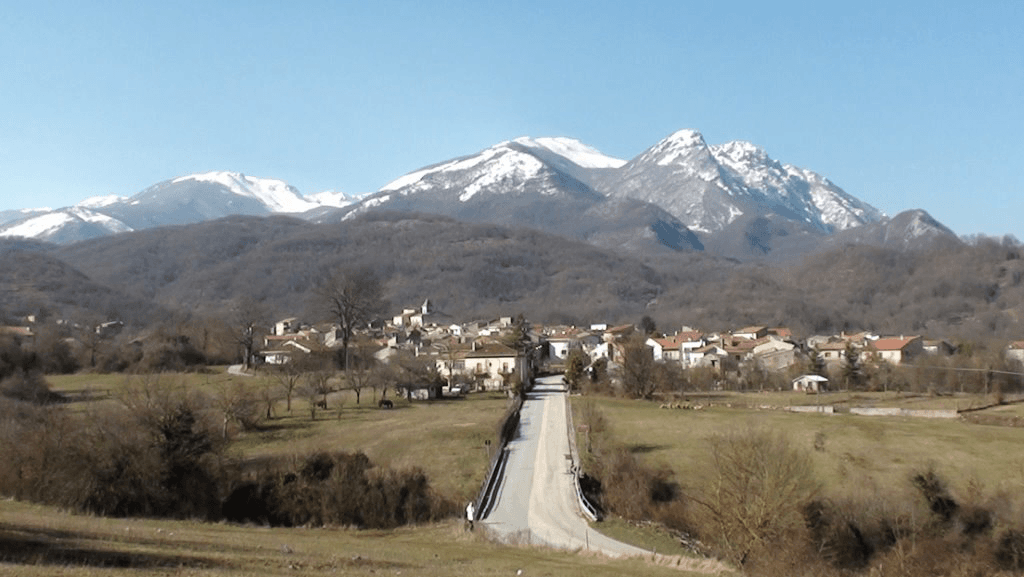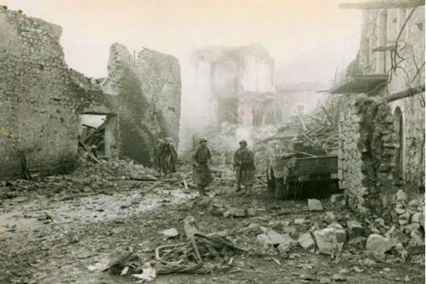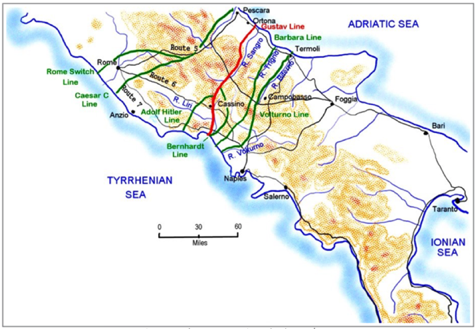

Games in the Rubble
Cerasuolo
Alfonzino Pacitti
Alfonzino Pacitti was born in Glasgow of Cerasuolo parents. His family home is still there in Cerasuolo, just off the main piazza. He recalled his first visit to Cerasuolo just after the war.
“The first time I went to Cerasuolo was as a 10-year-old child in 1947. When I arrived there it seemed a terrible place. Every second house had been reduced to rubble and filled with stones. Debris was strewn all over the place. However, after a few days, with some imagination, it turned out to be an adventure playground for youngsters.
Inside the ruined houses were empty ammunition boxes, soldiers’ steel helmets and empty bullet cartridges. There were also whole clips of live bullets. The helmets were used as wash-hand basins or water carriers. Ammunition boxes were used as panniers for carrying goods on the side of donkeys; the best way to get around as much of the roads were also damaged.
I soon made friends with the local children and they showed me some tricks of the trade. If you took a live bullet and stuck it in a hole in the wall, you could wiggle it about until the bullet came loose from the cartridge. You could then pour out the gunpowder and write your name or make shapes with it on the concrete. If you lit one end with a match it would burn up your name like a fuse on the ground.
My parents warned me of the many possible dangers but you know what kids are like. One of the local boys did have an accident and three fingers of one hand were blown off. On his return from hospital my cousin told me to go and visit him and bring him a bar of chocolate, which of course was a very rare thing at that time. Many years later, on one of my many visits to the village, I met him again. He had grown up in Belgium where he had gone to school and qualified as some kind of medic being referred to as “Dottore”. He obviously had done well despite his injuries and was driving a very nice sports car.
Another memory was of my younger brother, Valentino, finding a disarmed hand grenade and walking into the village with it hanging from his belt. The villagers went crazy and immediately took it from him. Shrapnel was scattered everywhere in great abundance and we could collect it and sell kilos of it to scrap merchants who would come round every month. Brass cartridge shells were also very valuable”



